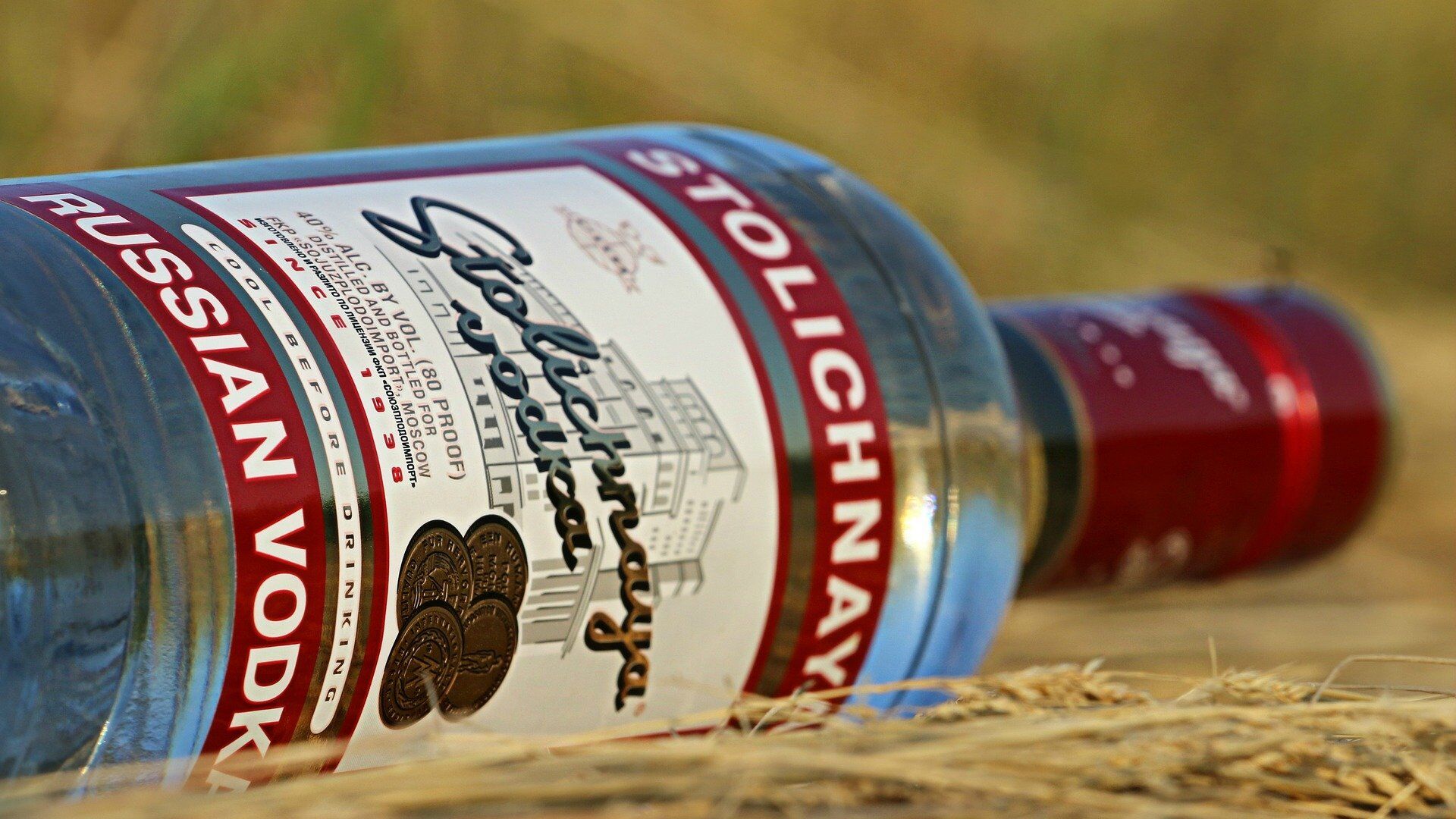https://sputnikglobe.com/20220302/nordics-banned-from-drinking-russian-vodka-amid-special-op-in-ukraine-1093507877.html
Nordics Banned From Drinking Russian Vodka Amid Special Op in Ukraine
Nordics Banned From Drinking Russian Vodka Amid Special Op in Ukraine
Sputnik International
Alcohol monopolies in Scandinavia date back to the 19th century and were created to prevent drinking problems and reduce the profit motive. Following Russia's... 02.03.2022, Sputnik International
2022-03-02T06:38+0000
2022-03-02T06:38+0000
2022-03-02T06:51+0000
ukraine
scandinavia
newsfeed
europe
finland
sweden
norway
vodka
liquor
russia's special operation in ukraine
https://cdn1.img.sputnikglobe.com/img/104543/57/1045435752_0:0:1920:1080_1920x0_80_0_0_eb05634daa2c542c5d1e26f63123a3fb.jpg
Sweden, Norway, and Finland, where the state has a monopoly on retail sales of spirits, wine, and beer, have decided to completely stop selling Russian products, citing Moscow's special operation in Ukraine.Systembolaget, Sweden's state-owned chain of liquor stores, chose to immediately withdraw all of the Russian items from its range of products and has announced it is cancelling all planned launches of Russian products."The situation is exceptional and we take the development very seriously. In light of the decision, we have informed the suppliers concerned", Systembolaget assortment manager Ulf Sjödin said in a press release.The company referred to the position of the Swedish government, which claims that Russia's special operation in Ukraine "violates the country's territorial integrity and sovereignty".Systembolaget's Norwegian counterpart Vinmonopolet followed suit by banning all Russian drinks, which account for 4 percent of total sales. Its CEO Elisabeth Hunter called this measure unprecedented in history, TV2 reported.Finland's alcohol monopoly, Alko, previously announced its decision to stop selling Russian-made products in shops and online stores due to the situation in Ukraine.The alcohol monopolies in Scandinavia date back to the 19th century and were created to prevent overconsumption and reduce the profit motive for sales of alcohol.The Nordic nations are not alone in their ban on Russian-made spirits. In a symbolic move, a handful of US governors have ordered state-owned liquor stores to stop selling Russian-branded liquors. Among others, boycotts of Russian-style vodkas were imposed in Ohio, New Hampshire, Pennsylvania, and Utah. A similar decision was made in Ontario, Canada, whose liquor control board removed all Russian assortments.On Thursday, 24 February, Russia began a special operation to demilitarise and "de-Nazify" Ukraine, responding to calls from the Donetsk and Lugansk People's Republics to defend them from intensifying attacks by Ukrainian troops. The Russian Defence Ministry emphasised that the special operation was solely targeting Ukrainian military infrastructure and that the civilian population is not in danger.In response, the West, including the US, the UK, the EU, and others, imposed comprehensive sanctions against Russia, including shutting their airspace to Russian aircraft and sanctioning a number of Russian banks and officials. Russian President Vladimir Putin signed a decree authorising tit-for-tat counter sanctions.
ukraine
scandinavia
finland
sweden
norway
Sputnik International
feedback@sputniknews.com
+74956456601
MIA „Rossiya Segodnya“
2022
News
en_EN
Sputnik International
feedback@sputniknews.com
+74956456601
MIA „Rossiya Segodnya“
Sputnik International
feedback@sputniknews.com
+74956456601
MIA „Rossiya Segodnya“
ukraine, scandinavia, newsfeed, europe, finland, sweden, norway, vodka, liquor
ukraine, scandinavia, newsfeed, europe, finland, sweden, norway, vodka, liquor
Nordics Banned From Drinking Russian Vodka Amid Special Op in Ukraine
06:38 GMT 02.03.2022 (Updated: 06:51 GMT 02.03.2022) Alcohol monopolies in Scandinavia date back to the 19th century and were created to prevent drinking problems and reduce the profit motive. Following Russia's special operation in Ukraine, the three Scandinavian nations have resorted to unprecedented political bans.
Sweden, Norway, and Finland, where the state has a monopoly on retail sales of spirits, wine, and beer, have decided to completely stop selling Russian products, citing Moscow's special operation in Ukraine.
Systembolaget, Sweden's state-owned chain of liquor stores, chose to immediately withdraw all of the Russian items from its range of products and has announced it is cancelling all planned launches of Russian products.
"The situation is exceptional and we take the development very seriously. In light of the decision, we have informed the suppliers concerned", Systembolaget assortment manager Ulf Sjödin
said in a press release.
The company referred to the position of the Swedish government, which claims that Russia's special operation in Ukraine "violates the country's territorial integrity and sovereignty".
Systembolaget's Norwegian counterpart Vinmonopolet followed suit by banning all Russian drinks, which account for 4 percent of total sales. Its CEO Elisabeth Hunter called this measure unprecedented in history,
TV2 reported.
Finland's alcohol monopoly, Alko, previously announced its decision to stop selling Russian-made products in shops and online stores due to the situation in Ukraine.
The alcohol monopolies in Scandinavia date back to the 19th century and were created to prevent overconsumption and reduce the profit motive for sales of alcohol.
The Nordic nations are not alone in their ban on Russian-made spirits. In a symbolic move, a handful of US governors have ordered state-owned liquor stores to stop selling Russian-branded liquors. Among others, boycotts of Russian-style vodkas were imposed in Ohio, New Hampshire, Pennsylvania, and Utah. A similar decision was made in Ontario, Canada, whose liquor control board removed all Russian assortments.
On Thursday, 24 February, Russia began a special operation to demilitarise and "de-Nazify" Ukraine, responding to calls from the Donetsk and Lugansk People's Republics to defend them from intensifying attacks by Ukrainian troops. The Russian Defence Ministry emphasised that the special operation was solely targeting Ukrainian military infrastructure and that the civilian population is not in danger.
In response, the West, including the US, the UK, the EU, and others, imposed
comprehensive sanctions against Russia, including shutting their airspace to Russian aircraft and sanctioning a number of Russian banks and officials. Russian President Vladimir Putin signed a decree authorising tit-for-tat counter sanctions.


